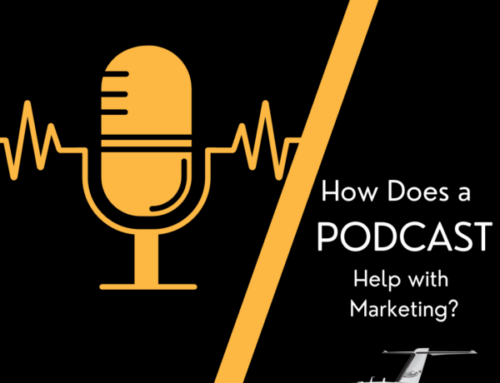If you’re invited to be a guest on our podcast (or anyone else’s!) it’s a great opportunity to be literally introduced to a whole new audience, in a low-key, conversational kind of way.
Couple of tips:
1) Know the host/audience.
Spend some time listening to episodes of the podcast and noodling about stories you can share that are going to resonate with the specific audience. You can use notes! You’re there to share what you know, but if you start from common ground, you’ll get a lot further. So if you’re talking about the merits of a particular type of composite material for aircraft components and your audience is mostly accountants, you’re going to want to talk about the financial angle. How much is this going to save in capital outlay and maintenance costs. Speak the language of your audience and connect the dots for them.
2) Be a good storyteller.
Structure your stories so that they are more fascinating to your audience.
3) The technical details.
Some podcasts are video, some are audio only. In either case, you might want to test your equipment
How to look good on video
How to sound good on audio
So you’ll sound the best and my audience can hear your message, please follow these recommendations:
If you’re using a microphone:
- Stay 4–6 inches (10–15 cm) from your microphone.
- Wear headphones.
- Go somewhere quiet. If you hear something, the microphone probably can, too.
- Turn off notification sounds or set to DND.
- Try to stay still. Touching the mic stand or cord often makes an audible noise on the line.
- Don’t worry if something goes wrong.
If you’re using a telephone:
- Don’t use speakerphone.
- Go somewhere quiet. If you hear something, the phone probably can, too.
- Turn off notification sounds or set to “Do Not Disturb”
- Try to stay still.
- Don’t worry if something goes wrong.
(from the Audacity Blog)
If you’re a guest on OUR podcast, we’ll be using Zoom. You can schedule a “smoke test” with us to ensure everything is working perfectly before your interview time.
AND, just remember, if something goes wrong, don’t worry. We pre-record interviews, so we have time to fix it!






Leave A Comment